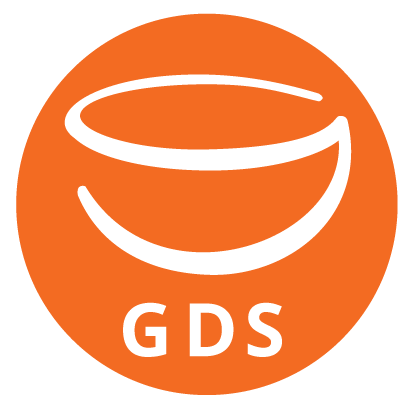Protein 101: Everything you need to know about high protein foods

What does protein do in the body?
Protein is an important macronutrient for the human body. Proteins are made up of amino acids and these are used in various critical functions such as building and repair of bones and muscles, maintaining pH and fluid balance, making hormones and enzymes, and keeping the immune system strong. Proteins also transport nutrients and can be used as an energy source.
Many people advocate the health benefits of eating a high protein diet. There has also been plenty of media and celebrity attention on dieting buzz words like keto, Atkins, Dukan Diet and South Beach which have raised the popularity of high protein meals combined with low carb eating. In terms of weight loss, eating high protein foods may assist with boosting metabolism, increasing muscle mass, and fat burning.
What are high protein meals?
A high protein meal is typically considered to provide at least 30g of protein per serving. At Dietlicious, all our high protein meals contain a minimum of 30g of protein. The high protein salads we list will give you at least 25g of protein. Lastly, our high protein snacks provide 5g of protein or more per serve.
We have seen a huge demand for high protein meals and high protein meal plans, which is why we have so many on our menu to choose from!
How much protein do I need?
The good news is that most Australians do eat an adequate amount of protein.
The dietary guidelines in Australia state that an adult male needs 0.84g of protein per kilogram of body weight daily and females need 0.75g of protein per kilogram of body weight per day. Once over the age of 70 years, the amount increases to 1.07g/kg for men and 0.94g/kg for women. This is fairly easy to calculate if you know your own weight, but we’ve created a quick reference table below, based on an average weight male and female.
If you’re looking to build muscle mass, you will need to aim for more high protein foods to ensure a higher overall intake. Whilst there are variables, a good rule of thumb is to aim for approximately 1.5g of protein per kilogram of body weight, per day.
Daily protein requirements
Here is the suggested amount of protein in grams that you should eat each day, both for a standard diet and for muscle building, based on an 87kg male or 72kg female.
|
Grams of protein required per day |
Average Male 87kg |
Average Female 72kg |
||
|
18-69 years |
70+ years |
18-69 years |
70+ years |
|
|
Standard |
73g |
93g |
54g |
68g |
|
Muscle Building |
130g |
|
108g |
|
How to get 100g protein a day?
Many health-conscious individuals or those who are training hard to build lean muscle mass, set themselves a target to eat 100g of protein a day. This can sound like a daunting amount but as long as you understand your high protein foods, it can be fairly easy to achieve your daily target. Here’s some meal suggestions to help you construct a menu.
Breakfast
- 1 scoop of protein powder - 20g
- 1 cup Greek yogurt - 17g
- Tomato + Chive Scramble – 16g
- 2 eggs - 12g
- Ham Frittata – 12g
- 2 slices of rye bread - 10g
- 2 tbsp of chia seeds - 10g
- 2 tbsp of peanut butter - 7g
- ½ cup of rolled oats - 5g
- 1 tbsp of hemp seeds - 4g
Lunch
- Korean BBQ’d Chicken – 33g
- Asian Chicken Salad – 28g
- 1 small 90g can of tuna - 23g
- Chicken + salad wrap – 20g
- 4 pieces nigiri sushi – 15g
- 1 cup bean soup – 14 g
- 1 cup quinoa salad – 8g
- 2 slices of wholemeal bread - 7g
- 1 slice of cheese - 7g
- 2 slices (60g) of deli ham - 5g
Dinner
- Lamb Tagine – 40g
- Thai Red Curry Salmon – 32g
- 120g chicken - 31g
- 120g steak - 28g
- 120g salmon - 23g
- 4 beef meatballs - 20g
- 1 cup tofu - 20g
- 1 cup edamame - 17g
- 1 cup quinoa - 8g
- 1 cup wild rice -7g
- 1 cup broccoli – 3g
What are some good high protein snacks?
Here are some good ideas for healthy high protein snacks that will keep your hunger at bay in between meals. Alongside them is the amount of protein.
- ½ cup cottage cheese + carrots - 12g
- ½ cup of trail mix - 10g
- 30g beef jerky - 9g
- Organic Tamari Almonds – 8g
- Vanilla Fudge Ball – 8g
- Fruit + Nut Ball – 7g
- Raw Choc Ball – 5g
- 3 tbsp hummus + celery sticks - 4g
Is high protein good for weight loss or does a high protein diet cause weight gain?
Protein can be excellent for weight loss, mainly because it helps to satisfy hunger and reduce appetite. Many people who want to lose weight opt to eat a high protein diet as it can assist with increasing muscle mass, boosting your metabolism and burning more fat. Make sure the overall your diet is balanced and contains plenty of nutrients and fibre from a range of food sources. Even if you choose to eat high protein, it’s not advisable to eat no carbohydrates or fats.
A high protein diet of itself does not cause weight gain. However, if you are watching your weight, then do be aware that some high protein foods can also be moderate-high in calories. It’s useful to understand the macronutrient composition of the foods you eat so you can stay within your target amounts.
Quick protein Q + A
Aside from how much protein do I need, the types of questions we often get asked are - Does fish have protein? How much protein meat? What fruits are high in protein? What vegetables are high in protein? Are nuts high protein? Can protein cause constipation? We aim to cover off these key points below.
Q. Does fish have protein? & How much protein in meat?
A. Of course fish has protein, it’s an excellent source as is other animal products such as meat, eggs and dairy! In terms of meat and fish, chicken tends to have more protein than beef and pork, followed by fish.
Q. Are nuts high protein?
A. Yes, nuts are high in protein! So too are seeds. Here are some examples of protein content for a handful of nuts or seeds which is approximately 30g - pumpkin seeds 8g, almonds, pistachios and sunflower seeds 6g, cashews and flaxseeds 5g, hazelnuts and walnuts 4g.
Q. What vegetables are high in protein?
A. The vegetables containing the most protein include spinach, artichokes, corn, avocado, asparagus, brussels sprouts, mushrooms, kale and potatoes. These veges range of 5.2g protein per cup (spinach) to 3g protein per cup (potatoes). So you’d need to eat a lot of veg if you wanted to meet your daily protein requirements. Legumes and pulses on the other hand, contain the following amounts of protein, per cup – soy beans 30g, lentils 18g, split peas 16g, black beans 15g.
If you’re vegetarian or vegan, you may find this article helpful, Finding protein rich food for vegetarians and vegans.
Q. What fruits are high in protein?
A. Compared with meats, eggs, dairy and nuts, fruits don’t contain much protein. However, here is a list of the highest protein fruits per cup - passionfruit 5g, guava 4g, avocado 3g, jackfruit 3g, apricots 2g, kiwi 2g, blackberries 2g.
Q. Can protein cause constipation?
A. Only if you don’t eat enough fibre or have adequate fluid intake. If you eat a high protein diet with too much emphasis on foods like meat, eggs and dairy (which have low fibre), then it is possible to end up constipated. A balanced diet containing plenty of fruits and vegetables, grains, legumes, nuts and seeds is so important for all round good health and nutrients. Exercise is also important for preventing constipation.







